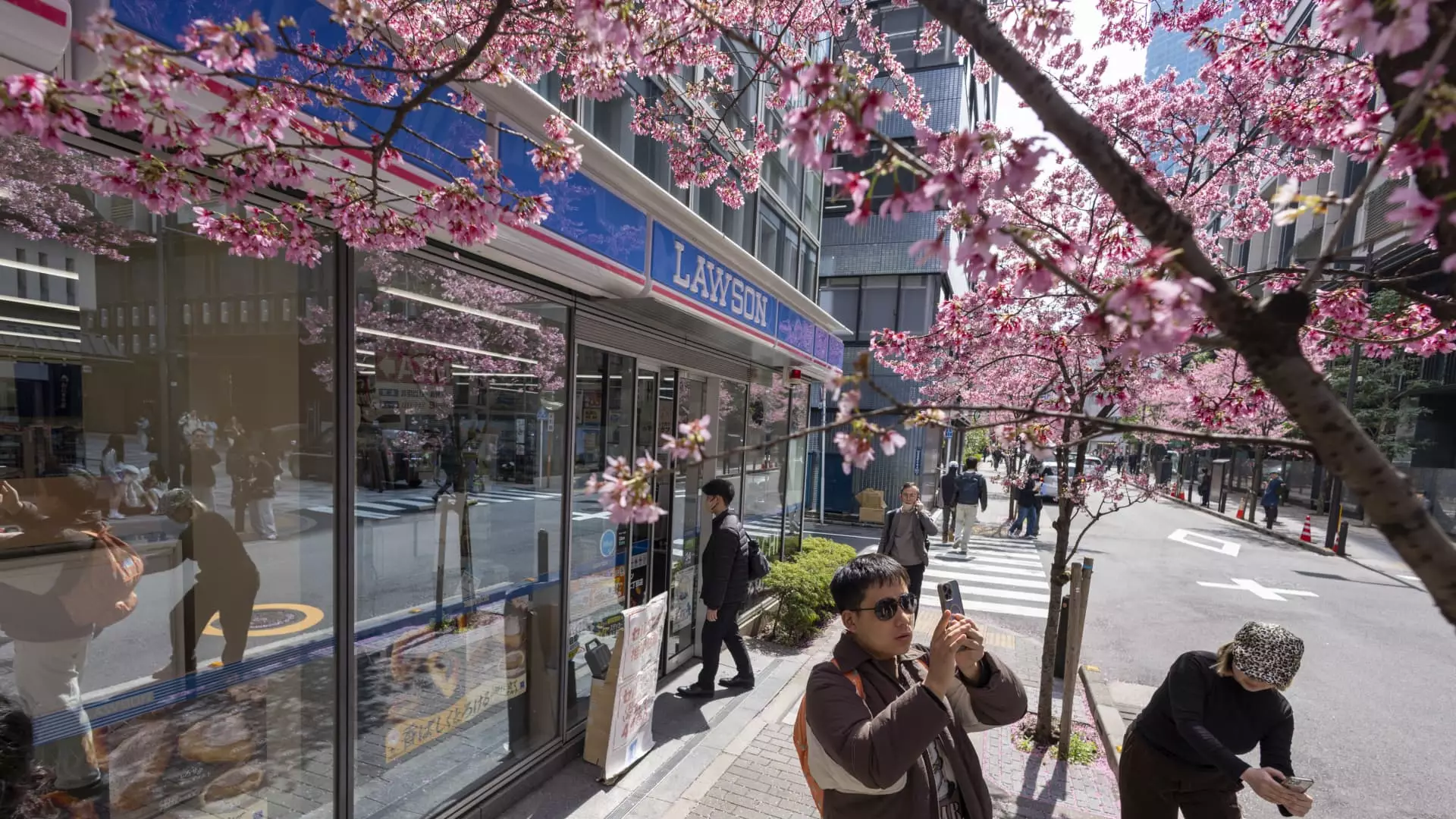In recent years, Japan has witnessed a remarkable transformation in its economy, spurred significantly by an influx of foreign tourists. This unprecedented rise has been attributed to favorable exchange rates, particularly the weakness of the yen, which has rendered shopping, lodging, and entertainment in Japan considerably more affordable for international visitors. According to reports from the Mastercard Economics Institute (MEI), inbound tourism was responsible for a staggering 0.4 percentage points of Japan’s GDP growth in the previous year alone. This contribution marked a stark contrast to the past decade, where tourism accounted for an average of only 0.1 percentage points from 2010 to 2019. The surge in travel and expenditure underscores a new era for Japan’s economy, showcasing tourism as a pivotal player in the broader economic narrative.
The Economic Implications of a Strengthening Yen
However, analysts have voiced concerns regarding the potential reversal of tourism’s beneficial impact, particularly if the yen continues to strengthen. The recent appreciation of the yen against the U.S. dollar suggests that Japan may be entering a new phase where the very conditions that attracted millions of visitors might diminish. Economic forecasts indicate that a robust yen could deter tourists by negating the financial incentives that currently make Japan a desirable destination. This scenario poses a substantial threat to the gains made in recent years, especially as Japan strives to rebound from the economic effects of the pandemic.
As the Bank of Japan raises interest rates to combat domestic inflation—while many other nations are moving toward rate cuts—the currency’s value is expected to rise. Experts like Yujiro Goto from Nomura warn that this trend could lead to a notable decline in tourism numbers, reiterating that the weaker yen has been instrumental in driving travel to Japan. Therefore, if the yen solidifies its position further, we might witness a dramatic shift in tourism patterns that could jeopardize the economic recovery narrative that Japan has worked hard to build.
The Future of Japanese Tourism Amid Global Changes
Interestingly, despite these warnings, there remains a glimmer of hope for the industry. Analysts like Min Joo Kang from ING express a nuanced view, suggesting that the recovery of Chinese tourists—who have yet to return to pre-pandemic levels—could provide a counterbalance to declining tourism numbers related to the yen’s strength. As Beijing introduces measures to stimulate consumer spending and bolster domestic markets, an increase in outbound tourism from China could revitalize its influence on Japan’s tourism sector.
However, the broader impact of these economic dynamics cannot be overlooked. While tourism remains essential, experts assert that Japan’s domestic consumption may rise to fill any void left by a dip in foreign tourist spending. The strong labor market and wage increases—reportedly achieving a historic 5.46% rise—could create a shift in the economic engine that drives growth. If domestic consumers replace foreign visitors as the primary source of economic vitality, the landscape may ultimately stabilize and continue to thrive.
Adapting to Change: The Shift in Economic Focus
As tourism potentially stabilizes or declines, Japan must adapt its economic strategies to harness the strengths of its domestic market. Rising wages and a securing labor market can bolster local spending, presenting new opportunities for economic growth disconnected from external factors. Analysts suggest that as foreign tourism contributions wane, domestic consumption could emerge as the key driver of Japan’s GDP growth, thereby reducing over-reliance on international visitors.
Implementing further fiscal policies that encourage local consumer spending could mitigate risks associated with fluctuating tourist numbers. Moreover, regional governments, facing challenges such as overtourism in hotspots like Kyoto, might consider employing higher taxes on foreign visitors to manage tourist flow while simultaneously enhancing their fiscal health. This dual approach could support both national and local economies, ensuring that Japan continues to flourish, regardless of the international tourism climate.
The Evolving Economic Landscape of Japan
While Japan’s economy has benefitted immensely from the tourism boom propelled by a weaker yen, the potential strengthening of the currency compels a reevaluation of existing strategies. The dynamics of inbound tourism are set to shift, but this change shouldn’t be viewed solely as a challenge.
Japan has the opportunity to pivot towards nurturing domestic consumption, even as it navigates the evolving global economic environment. The strengthening yen could be a catalyst for long-term structural adjustments—shifting focus from dependence on foreign tourism towards cultivating a robust internal market. This evolution could ensure that Japan remains on a robust economic path, leveraging its unique position as a high-demand travel destination while fostering sustainable growth through improved domestic consumer engagement.
While the road ahead is fraught with uncertainties, the resilience of Japan’s economy will ultimately rely on its ability to adapt and innovate in response to these emerging challenges and opportunities.


Leave a Reply